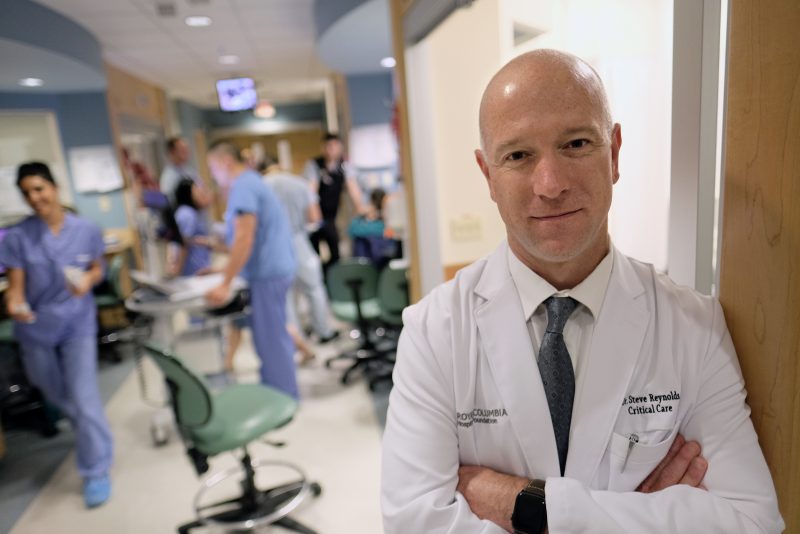
Around the world, doctors are noticing differences between some COVID patients and those who suffer from what is traditionally known as acute respiratory distress syndrome (ARDS). ARDS occurs when fluid builds up in the tiny, elastic air sacs (alveoli) in the lungs. The fluid keeps the lungs from filling with enough air, which means less oxygen reaches the bloodstream. This deprives organs throughout the body of the oxygen they need to function.
With ARDS, lungs scar and can stiffen. The typical protocol for treatment would involve mechanical ventilation, where a ventilator is used to assist or take over spontaneous breathing for the patient. However, physicians in the COVID-19 trenches are beginning to question whether standard respiratory therapy protocols for ARDS are the best approach for treating all critically ill patients with COVID-19.
In a letter to the editor published in the American Journal of Respiratory and Critical Care Medicine on March 30, and in an editorial accepted for publication in Intensive Care Medicine, Dr. Luciano Gattinoni of the Medical University of Göttingen in Germany and his colleagues make the case that protocol-driven ventilator use for patients with COVID-19 could be doing more harm than good.
Dr. Gattinoni noted that COVID-19 patients in intensive care units in northern Italy had an atypical ARDS presentation. About half had lungs with a better than expected ability to stretch and expand. He and his colleagues suspect standard protocol for mechanical ventilation for these patients is causing greater lung injury and contributing to multi-organ failure in patients with ARDS.
Dr. Steve Reynolds of Royal Columbian Hospital wants to find out if Dr. Gattinoni and his colleagues are right. He and his research team are conducting an observational study using imaging technology known as Electrical Impedance Tomography (EIT) to watch closely the lungs and heart of COVID-19 patients who are on mechanical ventilators in Royal Columbian Hospital’s ICU.
“Part of what we are doing is looking at the lung pressures,” explains Dr. Reynolds. “But we are also using techniques to look in real time at what’s happening in the heart to try to see how the heart and lungs interact.”
The data will be used to help inform mechanical ventilation protocols for patients with COVID-19 and will be shared with the international scientific and clinical community.
Dr. Reynolds and his team of six at Royal Columbian are uniquely positioned to conduct this research. With specialized pulmonary and physiological expertise gained in previous research trials over a number of years, they are able to deploy a wide array of sophisticated measures and techniques to gather ventilator-lung interactions in this group of patients. The team was also in a good position to launch this research in mid-April since patient volumes had not overwhelmed the province’s healthcare system.
“This is a disaster for folks across the world,” Reynolds said. “This is a way we can contribute to the global conversation and improve outcomes beyond just what we see in front of us.”
